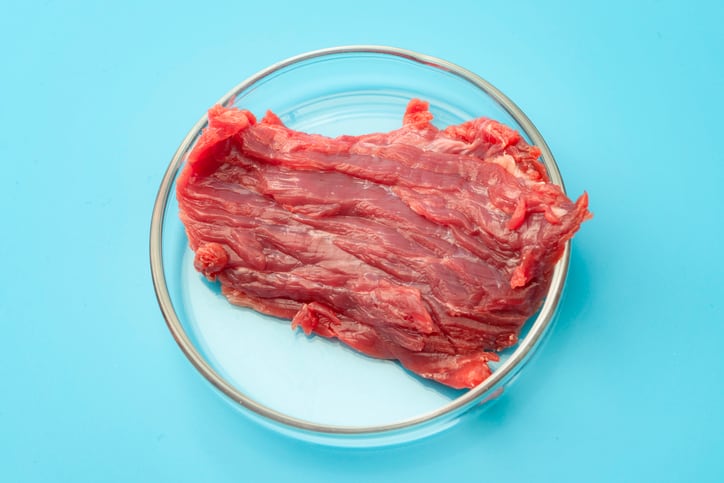The study, published in the journal Food Quality and Practice, surveyed 727 potential cultivated meat customers in Germany on their behavioural intentions regarding cultivated meat: willingness to try, regularly purchase, eat rather than conventional meat, and pay more. These were assessed on a seven-point Likert scale on likelihood. Their explicit and implicit attitudes towards cultivated meat were also assessed.
This was to provide a grounding for the main study, which paired information about cultivated meat with, firstly, pictures that focused on the technology surrounding it; secondly, pictures that focused on it in a more familiar context; and lastly, with no picture.
Behavioural intentions around cultivated meat
The results showed that food technology neophobia is a strong influence among all of those participating.
The study found that those who had higher levels of food technology neophobia were less likely to embrace it through their behavioural intentions, i.e., less likely to regularly buy and eat it.
The difference is less pronounced with those who have high levels of acceptance, however, meaning that neophobia is not as significant an influence on the potential to accept cultivated meat as it is on behavioural intentions. Explicit attitudes towards cultivated meat were also more positive than implicit attitudes.
The study tested people for their preference for deliberative or intuitive thinking, using the preference for intuition and deliberation scale (PID), and found that those who preferred intuitive thinking were more likely to embrace cultivated meat, and those who preferred deliberative thinking were more likely to reject it.
Another finding made by researchers is that the two groups who are most likely to eat cultivated meat are frequent meat eaters, and those who frequently eat meat substitutes such as tofu. Despite their separation by diet, they were two groups who showed an outlying enthusiasm for cultivated meat.
Influence of images
The main section of the study, which showed information about cultivated meat alongside different images, found that these images did not affect the participants’ intentions on cultivated meat one way or the other.
In other words, whether the information was alongside a picture of cultivated meat in a lab setting, cultivated meat photographed to look more like real meat, or simply on its own, did not affect participants’ desire to buy the meat.
Additionally, whether the information provided focused on the benefits of cultivated meat or simply remained neutral, people’s attitudes did not change. The study suggests a future exploration into the affect of information surrounding the risks of cultivated meat on consumer perceptions.
Before this paper, there was, the study says, ‘little research’ on the affects of such images on consumer perceptions of cultivated meat.
Sourced From: Food Quality and Preference
'First Impressions and Food Technology Neophobia: examining the role of visual information for consumer evaluations of cultivated meat ’
Published on: 5 August 2023
DOI: https://doi.org/10.1016/j.foodqual.2023.104957
Authors: C. M. Baum, H. D. Steur, C. Lagerkvist




